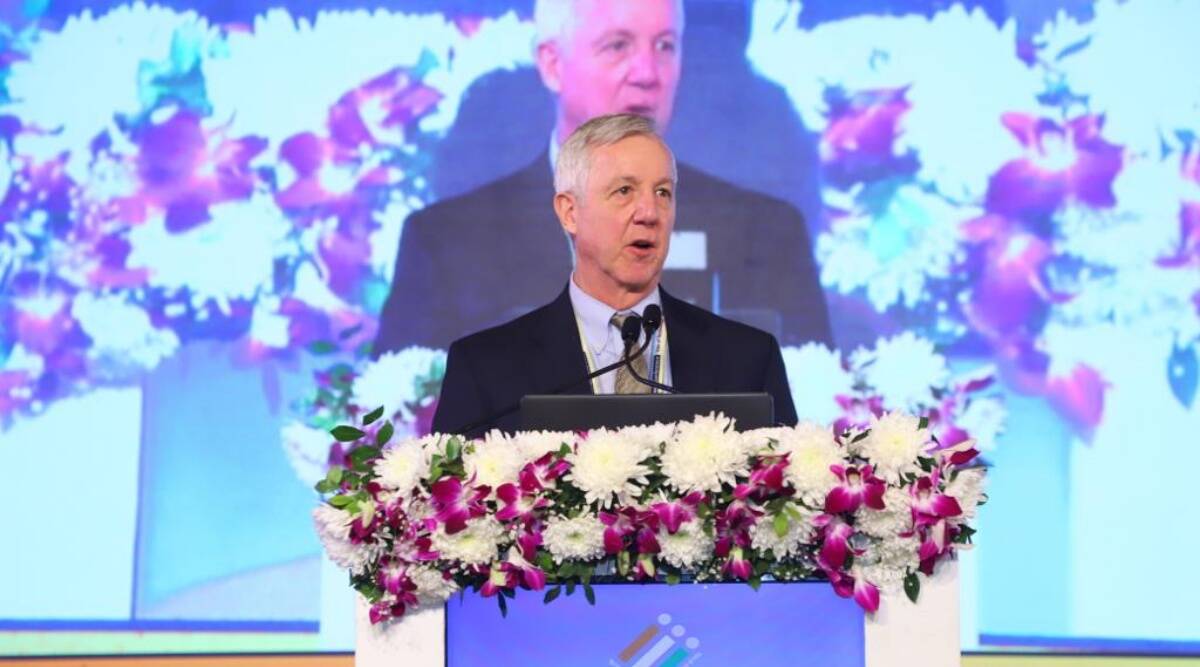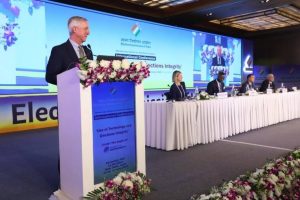Expert calls for voluntary standards for social media use during elections

Anthony Banbury, president of the International Foundation for Electoral Systems (IFES), referred to disinformation as the greatest threat to democracy and stated that voluntary norms for social media businesses were necessary.
Banbury was in Delhi on Monday and Tuesday to attend the Election Commission of India’s (ECI) international symposium on the use of technology to ensure election integrity. The first Summit for Democracy, sponsored by the United States, was held in December 2021, and the second will be conducted virtually in March of current year. Prior to the second summit, the ECI, together with IFES, Mauritius, and Greece, was selected to lead the election integrity cohort.
Banbury told The Deccan Era after the conference that it was an opportunity for IFES and ECI to discuss the challenges of misinformation with election management organisations (EMBs) from other nations. He stated that IFES was conducting research and practical programmes with EMBs on the subject. According to its website, IFES, which is based in the United States, receives funding from the United States Department of State, Canada, the Swiss Agency for Development and Cooperation, Australian Aid, and the Swedish International Development Cooperation Agency, among others.

Referring to his speech at the conference on Monday, he stated, “Yesterday, I told the conference that the information space is the greatest single threat to democracy, electoral integrity, and social cohesion in many nations around the world, and it’s just getting worse.”
He stated that technical tools were being created and made accessible to individuals, candidates, political parties, and bad actors. He stated that the low cost of application, the great return, and the low danger contributed to this. Additionally, he expressed caution regarding the usage of artificial intelligence and deep fakes.
“More and more companies are willing to sell commercial services to candidates, parties, or nefarious actors who want to influence election outcomes by spreading misinformation campaigns and attacking political opponents,” he said. “Those who consume information via social media are unaware of the origin of these attacks.”
He stated that ECI had expressed its desire to continue working together in a global setting to address the issue. He emphasised that social media corporations must be a part of the solution, as it was ultimately their platform that was used to spread misinformation.
“We strongly support the freedom of expression. In some other nations, ostensibly to combat misinformation on the Internet, autocrats have launched attacks on free expression. Clearly, we must reject that. I believe it is possible to develop criteria for social media businesses to follow in the context of elections that would be voluntary. He stated that EMBs would play a crucial role in the creation of these standards.
Rather than addressing the broader societal concerns of misinformation and deception on social media, he said that the recommendations should be tailored to the setting of elections. He stated that the activities of the conference would impact the outcome of the Summit for Democracy, which would take place virtually on March 29 and 30.
During the first meeting, Prime Minister Narendra Modi asked for “global norms for emerging technologies such as social media and crypto-currencies, so that they are used to strengthen democracy rather than destroy it.”



